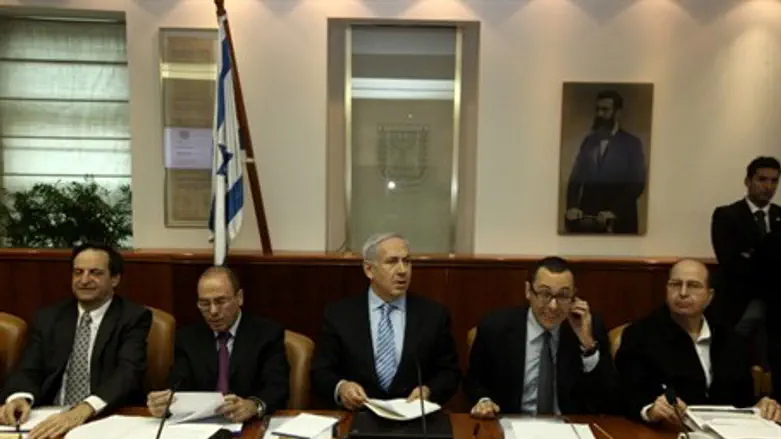
In his first appearance since leaving his National Security Chief post last month, Maj. Gen. (Res.) Ya'akov Amidror this week spoke at a conference where he remarked that an "historic change" can be witnessed in the world order, particularly in the Middle East.
To capitalize on the shifting international relations and power paradigms, Amidror advised using Israel's newly found Mediterranean gas and oil energy resources to strengthen its security ties with other countries.
Part of Amidror's speech can be seen here:
The Energy, Defense and Strategy (EDS) Conference that Amidror spoke at was held by Israel Defense magazine, along with the Interdisciplinary Center Herzliyah and other institutions. Over 200 senior executives in the defense and energy industries were in attendance.
Amidror noted the close relationship between management of energy resources and the regional security situation.
In this regard, the ex-National Security Adviser spoke about Israel's newly found offshore gas deposits, saying "we have to make important decisions on how Israel should export the gas, and these decisions have not yet been made. Israel does not have to be entirely dependent on its gas for power generation."
Using gas exports as a means to strengthen ties with neighboring countries is a strategy Amidror strongly recommended, noting Israel must consider energy relations with Turkey, Cyprus, Italy, Greece and others.
In a more global scope, Amidror said in terms of the energy market "the center of gravity moves east and especially towards China, and the issue of how to shift the weight from the old world to the new is yet not clear. In addition, there is currently enough energy in Northern Europe and Brazil to supply the needs of North America...and the need for energy originated from the Middle East is dropping. This is a factor that will have an effect."
Amidror urged awareness in assessing the changing situation in the Middle East, noting that Saudi Arabia and the Gulf states are for the first time willing to utilize their resources to influence changes, such as by investing money in Egypt and Syria.
The Saudis reportedly will financially back most of the $4 billion arms deal Egypt signed with Russia designed to give the Nile state at least parity with the IDF.
Amidror also noted Saudi Arabia was concerned about US-Iran rapprochement in the recent nuclear deal. According to reports, the Saudis could acquire a nuclear weapon quickly from Pakistan if pressed by Iranian nuclear development.